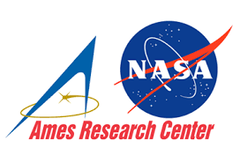Space STEM Programs

The MaxIQ Space STEM programs are built on the following fundamentals:
- Building young scientists and preparing youngsters for their futures in Industry 4.0
- Giving access to all
- Affordable, scalable, digital and leading to coding of experiments within minutes
- No requirement for a lab, or any technical equipment (e.g. no soldering required to build electronics)
Delivery Mechanism and Approach
MaxIQ Space has designed the STEM program so that it can be delivered at scale.
Scale requires:
- Online resources to provide content anywhere in the world to support teachers, students and facilitators
- Online content for experiments can be conducted without a teacher or facilitator
- Train the trainer mechanism so that delivery of workshops can be localised
- Kits that are robust, extensive, durable, and economical, that can be delivered anywhere in the world
- Techniques that do not rely on lab equipment, and costly resources for effectiveness
- Programme delivery that does not rely on highly skilled or specific individuals being available onsite
Kits
The Space STEM kits comprise a variety of electronic components and sensors, specifically selected for maximum utilization and experimentation.
This enables students to engage with important Internet of Things and Big Data concepts, as well as develop electronic products and solutions. Starting by designing and assembling their own devices, gathering data with our sensors, and transferring that data by the internet to the data dashboard, the experimenters learn to track and analyze data, conduct experiments to learn about the environment, and review the data live on the cloud dashboard.
The MK01 Space STEM kit is available as a single kit or a class kit of 10.
Students are supported in using their kits, an example can be seen on this page.
Pre-coded Software
Arduino code has been developed for the kits so that students can begin experimenting within minutes. When setting up the kits, the code is copied to the kit CPU. Once students are familiar with the operations of the kit, they can develop their own code for the kit.
Coding Languages and Examples
All the CPUs can be coded in Make-Code, Java, Python, Arduino and other popular languages in education and industry. The team has developed samples of code so that students can use these to develop their own, custom solutions.
Digital Dashboards
The kits can be connected to standard dashboards developed in Kibana and UbiDots. The students can develop their own dashboards too, and both Kibana and UbiDots are open source.
Comparative data sets
The MaxIQ team has collected various sets of data using standard kits, for all students to analyze. These include:
- Three hours during solar eclipse totality
- Medium balloon missions to 5km (15,000 ft)
- High altitude balloon missions to 30km (90,000 ft)
- Antarctica inside and outside the South African habitat, from November 2019 onwards
- Quest experiment to the International Space Station, December 2019 to March 2020
- Andes SETI data collection from November 2019 for six months
Students are encouraged to collect data sets in extreme or unusual environments for all to share.
Sponsored Programs available
Intelsat Gives Back - Mission 1 - a virtual Space STEM program with students receiving their own modular electronics kits at home. MaxIQ delivers virtual workshops with the theme "Earth in the Context of Our Solar System". This first mission is the stepping-stone to missions 2 and 3...going to space!
Limited to 30 places, this program is fully sponsored by Intelsat.
Sustainable Development Goals - with the support of the UN Development Program, MaxIQ runs a global workshop program with students from across the globe. Schools or community groups receive modular electronics kits for participants to work in groups or alone. Virtual workshops are delivered by expert Space STEM and Sustainability experts and a rich repository of videos and resources is available to support the subjects covered.
More details are available here and if you believe your group qualifies for sponsorship, please apply here.
Suborbital Launch Challenge - MaxIQ challenges student groups to build and launch suborbital payloads. Sign up by end of December 2022, "space" is very limited.
Space Projects
- 2020 and 2021 – MaxIQ students participated in joint missions to International Space Station with NASA and Quest for Space
- April 2019 – The MaxIQ team supplied kits for the ThinSat program, with the inaugural launch. Every one of the components on the orbital mission worked perfectly, giving the team space heritage.
The MaxIQ team is eager to ensure that students have access to space, to meet the fundamentals outlined earlier:
- Building young scientists and preparing youngsters for their futures in Industry 4.0
- Giving access to all
- Affordable, scalable, digital and leading to coding of experiments within minutes
- No requirement for a lab, or any technical equipment (e.g. no soldering required to build electronics)
Launch Opportunities
MaxIQ Space launch options can be found here.
Our Partners
Changing the world isn't easy, and we couldn't do it alone.
A core value of MaxIQ is to be able to provide our educational resources to students around the globe, especially those who live in areas where there is a lack of educational infrastructure to support these young minds in achieving their full potential. MaxIQ wouldn't be able to fulfil our mission without support from...
Subscribe to our emails
Subscribe to our mailing list for insider news, product launches, and more.




